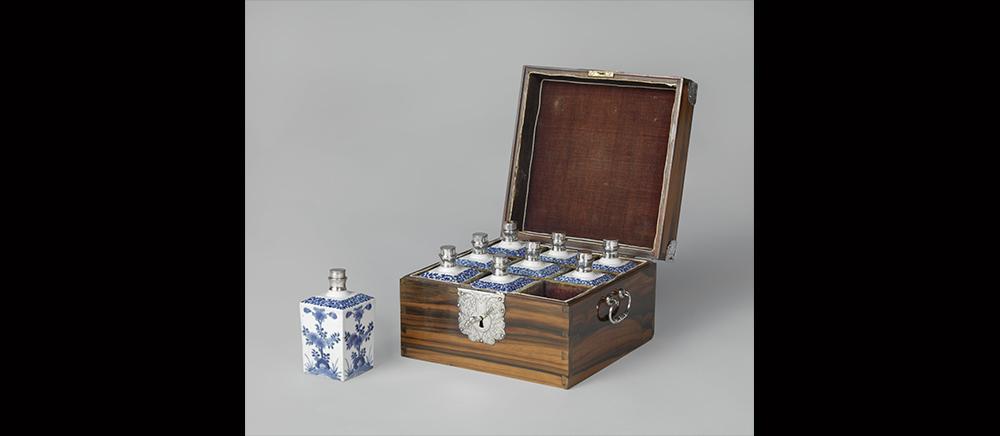Boxes Fit for Kings: Aromatic Gifts around the Late-Seventeenth- and Early-Eighteenth-Century Indian Ocean
Error message
Could not retrieve the oEmbed resource.
Gilded glass bottles blown in India and porcelain flasks produced in Japan circulated around the Indian Ocean, filled with aromatic oils and packaged in custom-made boxes. These fragrant items were doled out as gifts by the Dutch East India Company, distributed to gain commercial leverage with high-profile recipients across an arena that stretched from the mountains of Ethiopia to the Qing Emperor’s court.
In this lecture, Nancy Um follows these intriguing items from their diverse places of manufacture to their points of distribution and demonstrates their strategic power as bestowals.
People
Nancy Um
Nancy Um is professor in the department of art history at Binghamton University. She received her PhD in art history from UCLA in 2001. Her research explores the Islamic world from the perspective of the coast, with a focus on material, visual, and built culture on the Arabian Peninsula and around the rims of the Red Sea and Indian Ocean. Her book The Merchant Houses of Mocha: Trade and Architecture in an Indian Ocean Port(University of Washington Press, 2009) relies upon a cross-section of visual, architectural, and textual sources to present the early modern coastal city of Mocha as a space that was nested within wider world networks, structured to communicate with far-flung ports and cities across a vast matrix of exchange. Her recent book, Shipped but not Sold: Material Culture and the Social Order of Trade during Yemen’s Age of Coffee(University of Hawai’i Press, 2017), explores the material practices and informal social protocols that undergirded the overseas trade in 18thC Yemen. Her articles have appeared in the Journal of the Society of Architectural Historians, African Arts, Northeast African Studies, Journal of Early Modern History, Genre: Forms of Discourse and Culture, Art History, and Getty Research Journal. She has received research fellowships from the Fulbright program, the National Endowment for the Humanities, the Getty Foundation, and the American Institute for Yemeni Studies.
